
'Saudi plan means Israeli acceptance'
By HERB KEINON
Jul. 25, 2007 13:35 | Updated Jul. 26, 2007 1:42
Besides wanting to see other Arab countries in addition to Jordan and Egypt take part in discussions with Israel over the Arab Peace Initiative, Israeli leaders told the visiting Jordanian and Egyptian foreign ministers on Wednesday that they would like to see more public support from Arab governments for the significant gestures Israel has taken over the last few weeks toward the Palestinians.
These steps include the release of 255 Palestinian prisoners, the "amnesty" granted to nearly 180 wanted men in the West Bank, and the regular transfer of tax revenues to the Palestinian Authority. One official said public Arab support for these moves was important in building Israeli public opinion in favor of the diplomatic process.
Prime Minister Ehud Olmert told visiting Egyptian Foreign Minister Ahmed Abul Gheit and his Jordanian counterpart Abdelelah al-Khatib before their meeting that he would "be more than happy if the next time you come you will bring with you ministers from more Arab countries."
In the meantime, Israel expressed satisfaction with the visit of the two ministers who came to present Israel with the Arab Peace Initiative relaunched in Riyadh last March.
Foreign Minister Tzipi Livni stressed the "historic" nature of the visit as the "first joint visit to Israel as members of the Arab working group, which was established by the Arab League."
Both Gheit and Khatib were careful in their press conference with Livni not to draw a direct connection to the Arab League.
"This is a visit that comes in accordance with the mandate given to us by the Arab committee assigned by the Arab summit to follow up on the Arab Peace Initiative," Khatib said, reading from a written text. "We are here today to present to the Israeli government, the Israeli people and the Israeli parliament this collective Arab peace offer in order to reach a permanent and comprehensive settlement to the Arab-Israeli conflict based on a two-state solution and on the establishment of an independent, viable and contiguous Palestinian state on the Palestinian territories occupied since 1967, including east Jerusalem, and of reaching agreement with Israel, Syria and Lebanon based on returning territories occupied since 1967."
Khatib said this offer "constitutes a major opportunity of historic magnitude. It will provide Israel with the security, recognition and acceptance in this region, which Israel has long aspired to."
He said the peace initiative has been endorsed by the vast majority of the members of the international community, including and especially the vast majority of the Muslim countries, members of the Organization of Islamic Conference, including more than 50 Muslim countries and 22 Arab countries.
"The initiative will make Israel part of this region and will enable our people and the entire region to look forward with hope and devote their energy and efforts to achieve growth and prosperity and advance the improvement of life of all in this region," Khatib said.
The Arab Peace Initiative, based on the Saudi peace plan of February 2002, calls for a full Israeli withdrawal from all territories taken in the 1967 Six Day War - including east Jerusalem and the Golan Heights - in exchange for normal ties with the Arab world. It also calls for the return to Israel of Palestinian refugees and their descendents.
While Olmert and Livni have in the past welcomed part of the initiative and rejected other parts, both of them steered clear of publicly articulating Israel's difficulties with the initiative during this visit, preferring instead to dwell on the significance of the visit and how it added to the current diplomatic momentum.
"The Arab Peace Initiative has many elements on how to get to peace in the region," Livni said. "Naturally it reflects the Arab narrative, just as we have our principles. I think it would be a mistake today, precisely at this opportunity, to start a type of argument on each of the clauses."
"One thing we don't need today is to show the difference of all the sides," she said.
Gheit urged Israel to begin talks with the Palestinians on more than just a "political horizon," saying a horizon wasn't enough and that there was a need to move to "agreed steps."
He said he and Khatib would report back to a meeting of the Arab League foreign ministers on Monday about their talks in Israel.
"We also intend to propose some ideas," Gheit said. "However, we are not going to negotiate on behalf of the Palestinians. We will be helping both the Israelis and the Palestinians reach the destination of a Palestinian state living side by side by Israel in peace and security for both."
Israeli diplomatic officials expressed satisfaction with the position both Gheit and Khatib expressed, namely that the Arab League does not want to negotiate on behalf of the Palestinians, but rather wants to support the negotiation process between the two sides.
In addition to meeting Olmert and Livni, the two foreign ministers also met with President Shimon Peres, Defense Minister Ehud Barak and Likud chairman Binyamin Netanyahu. They also appeared before the Knesset Foreign Affairs and Defense Committee.
Meanwhile, the Israeli citizenry has a different plan.
Maariv: 71% Say ‘Disengagement’ Was a Mistake
(IsraelNN.com) According to a poll conducted recently by Maariv, 71% of Israelis believe that the expulsion of Jews from Gaza and northern Samaria was a mistake. 51% believe the expulsion damaged Israel’s security, while 30% believe there was no change and 12% believe Israel is now stronger.
When asked about the possibility of future unilateral withdrawals, only 18% were in favor, eight percent of whom said that the IDF must remain in Judea and Samaria even if Jewish towns are destroyed. 74% oppose destroying Jewish communities without an agreement with the Palestinian Authority. 48% opposed destroying Jewish communities in Judea and Samaria even as part of an agreement with the PA, while 42% were in support.
Olmert is clearly being pressed from three sides.
1)Israelis (constituents)
2)The US (Bush/Condi)
3)Arabians/the rest of the world
The job of PM of Israel is not the position for the weak of heart or the weak of spirit. Olmert, unfortunately is weak of both. Which pressure is the one which Olmert will listen to with the greatest attention?
Secy. Rice: Israel Must End Occupation of 'West Bank'.
Luckily for Olmert, this pressure has an expiration date when Bush and his ice-skating secretary will depart from their offices due to the transition (fumigation) to the next administration no matter who wins the Presidency. At least then the game clock will be reset and we start over.
Olmert should be paying the most attention to the Israeli population. Democracy in Israel however does not include responsive politics, only interest group politics portrayed as statesmanship. You know what kind I mean, "making the hard decisions", code language for following the dictates of everyone who doesn't live in Israel nor vote in Israeli elections.
As for the arabians, who really cares? Offers to surrender have come and gone in the past and nothing has changed. It makes no difference whether or not the offer is accompanied by the threat of violence or accompanied by offers of brotherly love. Surrender is still surrender. In the past, Israel offered everything won by warfare to the arabians merely for "recognition".
The best remembered action at Khartoum, however, was the adoption of the dictum of "Three NOs" with respect to Israel:
1. NO peace with Israel
2. NO recognition of Israel
3. NO negotiations with Israel
Today, however the situation has changed. With the growing nationalist religious outlook in Israel and common sense born from the crucible of half a century of being warred upon, Israelis by and large know that surrender of territory does not bring peace. Yes, you may point to Egypt and say that since the Sinai withdrawal, there has been peace between Israel and Egypt. But the Sinai is not per see Israel. Yehuda/Judea and Shomron/Samaria are very much a part of Israel if not the biblical homeland itself.
The arabians are not entitled to this holy land and no Jew could with a clean conscience hand it to barbarians sworn to rid the land of all her Jewish inhabitants. The arabians have no right to this position. Jews, on the other hand can point to population transfer legitimately, being that almost all of the arabians living in Yosh are not long time residents of the land, merely squatters stuck in Israel who came there between the time of the Turkish and the British. The Jews, of course are native to the land no matter where they may have been born. Arabians, of course are native to Arabia no matter where they may have been born. A little bit of truth injected into this discussion either by Israel or the US would be refreshing. Maybe Fred Thompson will be that breath of fresh air.




















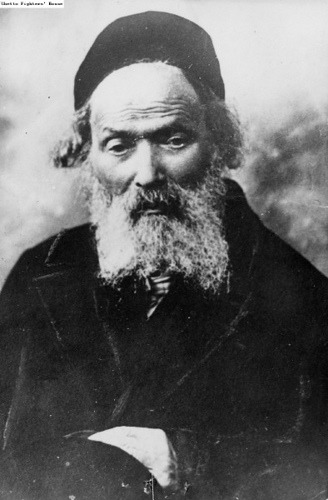
















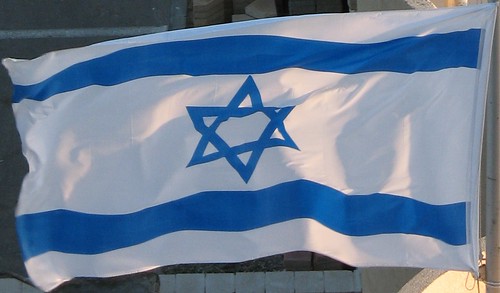
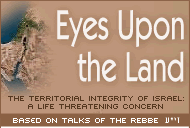

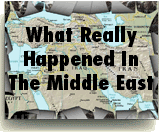








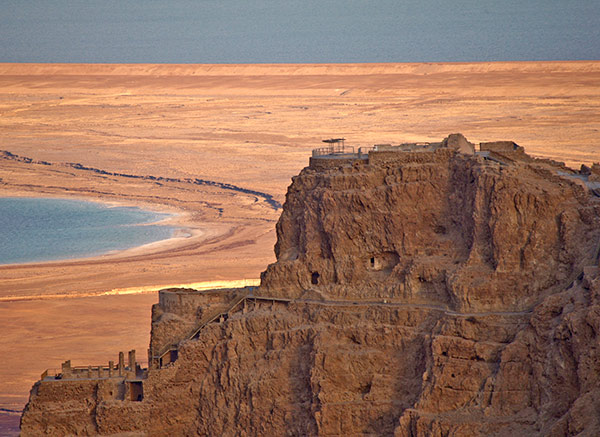






0 comments:
Post a Comment